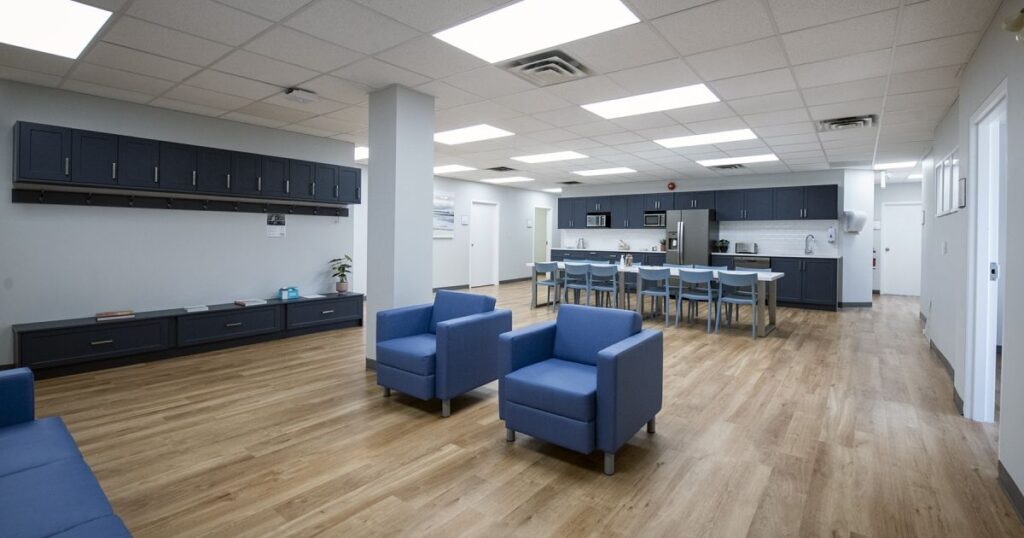Individuals from Kingston and the surrounding region, who have been diagnosed with an eating disorder, are now able to access more treatment options through Kingston Health Sciences Centre’s (KHSC) recently opened intensive day treatment program.
The new eating disorders clinic connects patients with a team of specially trained medical experts, including a psychiatrist, psychotherapists, occupational therapists, nurse practitioner, and dietitian. The program was made available through $1 million in base funding which was announced by Ontario Health last year.
“This program meets a critical need in our community as we have seen a dramatic increase in the number of referrals for patients with an eating disorder,” says Nicholas Axas, program operational director of the Mental Health and Addiction Care at KHSC. “The isolation and heightened anxiety brought on by the pandemic surely helped to trigger this jump. We’re also seeing increase in complexity and severity of eating disorders.”
The clinic offers two phases of support, the first is a full-time (five days per week) 12-week intensive program where patients will participate in a both group and individual therapy, as well as take part in shared mealtime to support them as they begin to re-build healthy relationships with food. Once the 12-week program is complete, patients can sign up for the second phase that sees them attend monthly follow-up sessions aimed at gradually creating independence in their own recovery.
“Eating disorders are complex conditions that equally impact your physical health and mental health,” says Dr. Nishardi Waidyaratne-Wijeratne, the consulting psychiatrist at the clinic. “The type of day treatment provided by this clinic can provide more support than a traditional outpatient program, which was already offered at KHSC. This clinic offers an additional layer of care in our region.”
The clinic, which is located within the Quarry Medical Building at 190 Wellington Street, primarily focuses on supporting patients who are struggling with anorexia nervosa, bulimia nervosa and other specified feeding or eating disorders, but who do not require hospitalization.
“We chose to locate the clinic outside of the hospital, to provide a more relaxing, less clinical environment for our patients,” says Axas. “We really focused on creating a space that felt healing, therapeutic and supportive.”
To be referred to this clinic, individuals who have been diagnosed with an eating disorder, should speak to their primary care provider or family doctor. Those in the community who do not have access to primary care can be referred to the program by a walk-in clinic or through a student wellness program at their college or university.
To learn more about the program visit: https://kingstonhsc.ca/mental-health-and-addiction-care/eating-disorders-day-treatment-program

